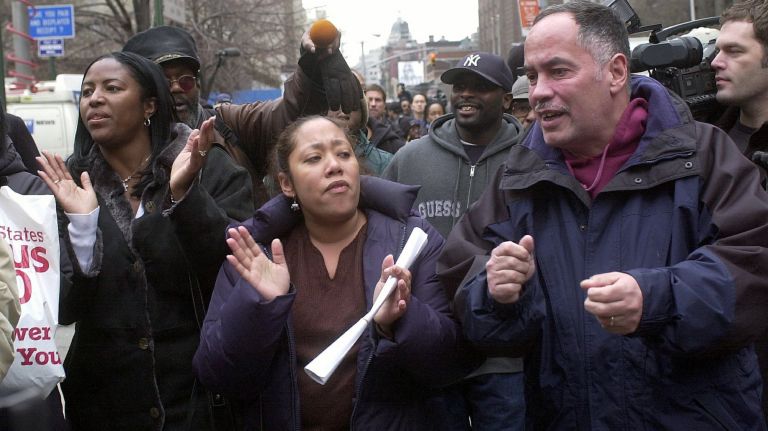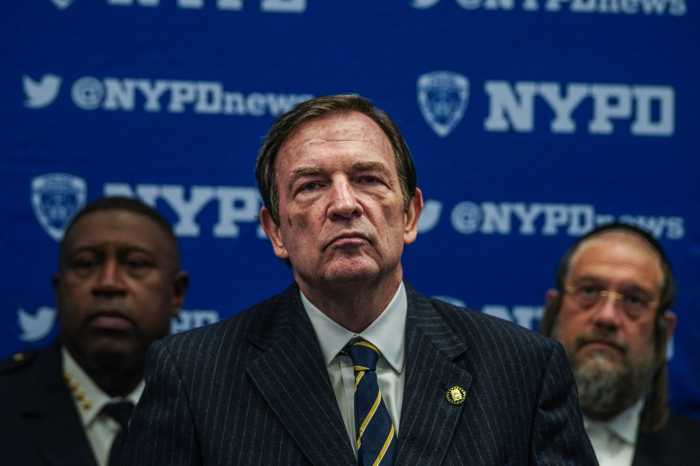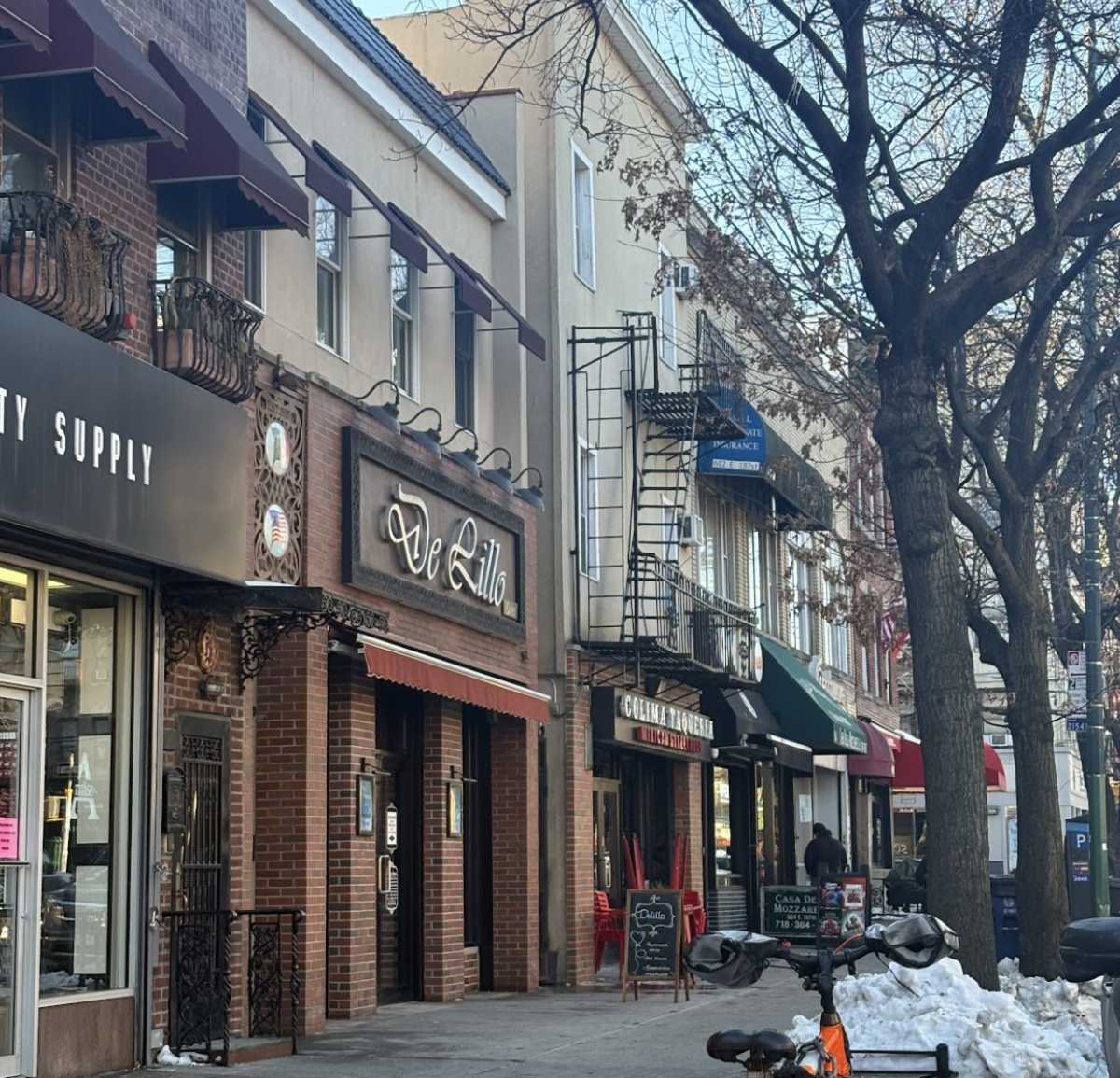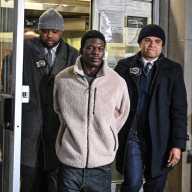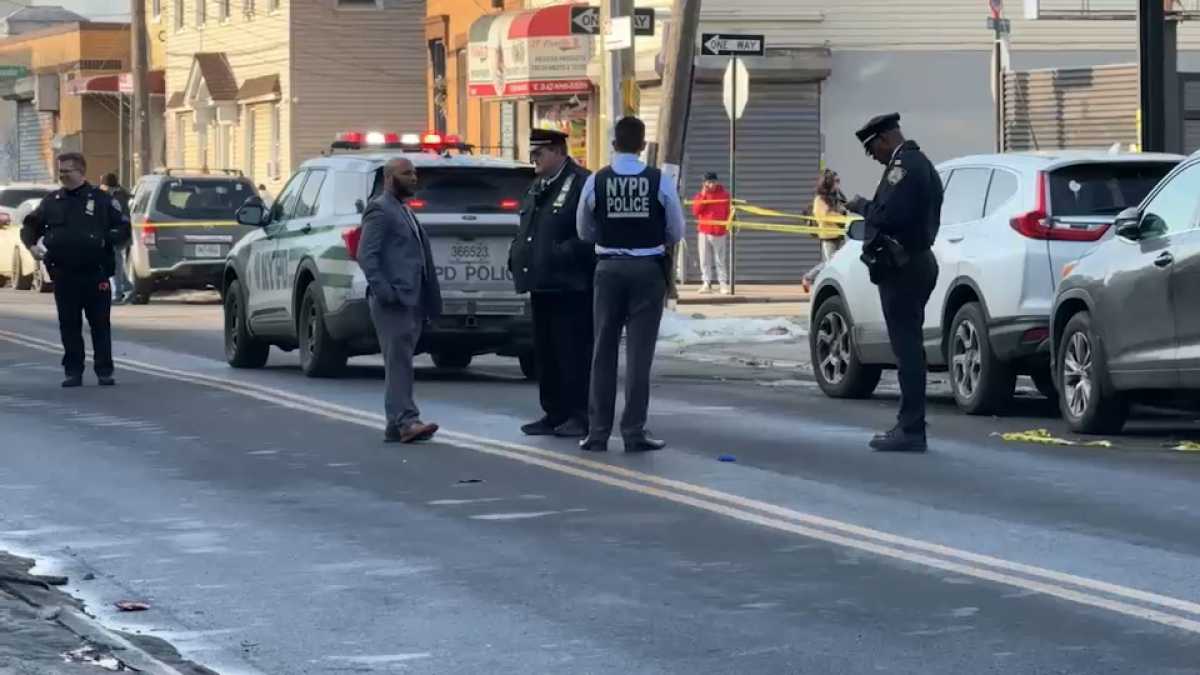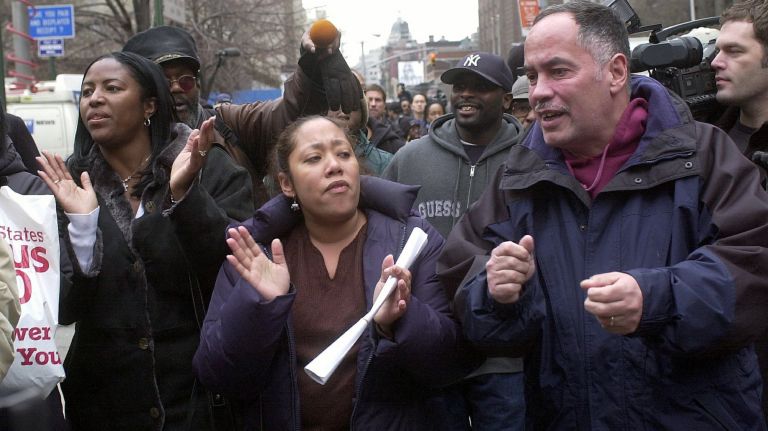
Editor’s note: This article originally ran in Newsday on Dec. 20, 2002.
Twelve years after they were found guilty, a judge yesterday tossed out the convictions of the five young men imprisoned for one of the city’s most infamous crimes — the 1989 near-fatal beating and rape of the Central Park jogger.
"The motions are granted as to all of the convictions," State Supreme Court Justice Charles J. Tejada said, referring to defense motions to set aside the verdicts for the attack on the 28-year-old investment banker as well as the assaults of two male joggers in the park that night.
Whoops and cheers erupted from family members and other supporters of the five young men in the court at 100 Centre St. in Manhattan.
"Reparations," one man yelled.
"Black power," called out another.
The judge’s ruling came in light of a confession to the attack by an imprisoned serial rapist last winter and DNA evidence linking him. Manhattan District Attorney Robert Morgenthau reinvestigated the case and two weeks ago issued a 58-page report recommending the convictions be vacated.
Tejada’s decision touched off contentiousness.
At the police department, where detectives have staunchly defended their investigation, Police Commissioner Ray Kelly said the ruling did not exonerate the defendants, and fired off a rare salvo at the district attorney’s office, contending that Morgenthau has complicated the police reinvestigation by blocking the release of information.
A spokeswoman for Morgenthau declined to comment.
Lawyers for the five men, who have completed their prison sentences, signaled an intent to file civil lawsuits, while also seeking a criminal investigation of what they called police misconduct and prosecutorial abuses.
As few crimes before or since, the attack shocked a city that was coping with soaring crime and racial tensions. The victim, who was white, was found unconscious in a ravine, and the five young men, all minorities and between ages 14 and 16, were quickly arrested, with four of them giving videotaped statements implicating themselves. Defense attorneys claim that experienced detectives tricked the teens into making false confessions, despite the presence of family members at three of the tapings. The convictions were largely based on the confessions. In the courtroom immediately after the ruling, Sharonne Salaam, whose son, Yusef, served 7 years and 11 months behind bars for the crime, opened her jacket to reveal a tie-dyed "Yusef is Innocent" T-shirt, which she had kept in her closet since her son went on trial.
"This should have happened over 13 years ago because all the evidence was here then," she declared. "People put on a blind eye."
Whatever Yusef Salaam was doing in Central Park that night of April 19, 1989, his mother said, "he was not committing crimes," she said.
Now 27, Yusef Salaam, whose rap poem proclaiming his innocence was jeered at his sentencing, is looking forward to all the rights of being a citizen, as opposed to a convicted felon. "My son has been out for a few years and not one of those years has he been allowed to vote," his mother said.
The charges were tossed out after Matias Reyes came forward claiming that he alone had attacked and raped the jogger, and his DNA matched semen found on her sock at the crime scene.
Reyes, who is serving 33 1/3 years to life in prison, also committed a similar attack in the park two days before the brutal assault on the jogger. Other evidence, such as hair found on one of the young men that the jurors were led to believe matched that of the jogger’s hair, was undermined by testing during the district attorney’s reinvestigation.
"Given the facts," the judge ruled, " … it is virtually self evident that the newly discovered evidence — specifically the confession of a self-admitted murderer and serial rapist corroborated by physical evidence, including scientific testing establishing that he was the sole source of DNA evidence connected to the Central Park jogger’s rape … – would create the probability that … the verdict would have been more favorable to the defendants."
Tejada said such a conclusion wasn’t as clear-cut when it came to the convictions of four of the young men for the unprovoked attack on John Loughlin, a Washington Heights gym teacher who was jogging in the park that night.
But, the judge said, "the court finds that the newly discovered evidence … is so intertwined with all the crimes charged against the defendants, and that it would so weaken the reliability of the confessions, that the newly discovered evidence would create a probability that … the verdict would have been more favorable to the defendants as to all the convictions."
The ruling granted the five men a new trial, but Assistant District Attorney Peter Casolaro told the judge yesterday that prosecutors were dismissing the original indictments.
Morgenthau, in a statement after the ruling, said he had requested the convictions be set aside after "an extensive, complex and painstaking investigation … to fulfill my obligation to uncover the facts, to apply the law without fear or favor, and to see that justice is done."
Defense attorney Michael Warren, who represented three of the young men in their effort to vacate the convictions, said he was gratified by the judge’s decision.
However, Warren said the fight was not over and that he hoped there would be a criminal inquiry into the case. "We have struggled long and hard in the first stage of this case … and embark with as much vigor on the second stage … a criminal inquiry based on the conduct of the police and of the two prosecutors, Linda Fairstein and Elizabeth Lederer."
Fairstein was head of the sex crimes bureau at the Manhattan District Attorney’s office and oversaw the case. Lederer was the main prosecutor.
The district attorney’s office declined comment on the allegation of prosecutorial misconduct, as did Lederer, who still works for the office. Fairstein, who no longer does, did not return calls.
Warren and other defense attorneys also called for videotaping not only confessions but all interrogations leading up to them. Such videotaping would make clear how confessions come about.
The Detectives Endowment Association, which has stood by the work that gained the teens’ confessions, sought a court injunction yesterday to prevent the judge from issuing the ruling earlier than scheduled.
Richard Dienst, a lawyer for the Detectives Endowment Association, told reporters that the district attorney’s report was "one-sided" and, in effect, attacked "the credibility and the good names" of the detectives who worked on the case. The report also gave too much credibility to Reyes, he said.
Warren saw it differently. "The eleventh hour move [by the detectives association] is a desperate attempt to try to give credibility to actions … that are bordering on criminality."
Defense attorney Eric Seiff said, "I wish the police department would be able to exercise objectivity like every institution when they make a mistake, instead of circling the wagons."
The five defendants were convicted in two separate trials in 1990:
- Raymond Santana, 28, who was found guilty of rape and assault, was released in December 1995 after serving 6 years and 8 months.
- Kevin Richardson, 28, who was convicted of attempted murder, rape and sodomy for the attack on the jogger and four counts of robbery and assault for attacks on two male joggers the same night, was released in June 1997 after serving 8 years and 2 months.
- Yusef Salaam, 27, gained freedom in March 1997 after serving 7 years and 11 months.
- Antron McCray, 28, was released in September 1996 after serving 7 years and 5 months.
- Kharey Wise, 30, was found guilty of sexual abuse and assault in connection with the attack on the female jogger, and acquitted of all counts related to the attacks on the male joggers. He served the longest sentence of all because he was 16 at the time of the crime – 13 years and 3 months.
Salaam, McCray and Santana all had been tried together and found guilty of rape and assault of the jogger, as well as robbing and assaulting a male jogger, and assaulting a second male jogger.
On Monday, Santana, who is incarcerated on an unrelated drug conviction, is scheduled to appear before state Supreme Court Justice James Yates in an effort to be freed immediately. According to his attorney, Roger Wareham, he would have been released already if not for the longer sentence he received in the jogger case.
All five young men now have been removed from the state’s Sex Offender Registry, according to a spokesman, Scott Steinhardt.
Wise was the last to be released from prison, in August, and will be taken off parole. His mother, Deloris Wise, did not express any joy over the clearing of her son, saying the decision merely set right a long-standing instance of injustice that never should have taken place in the first place.
"He didn’t give me anything," she said of the judge as she waited for an elevator to leave the courthouse. "It should have never been taken."



